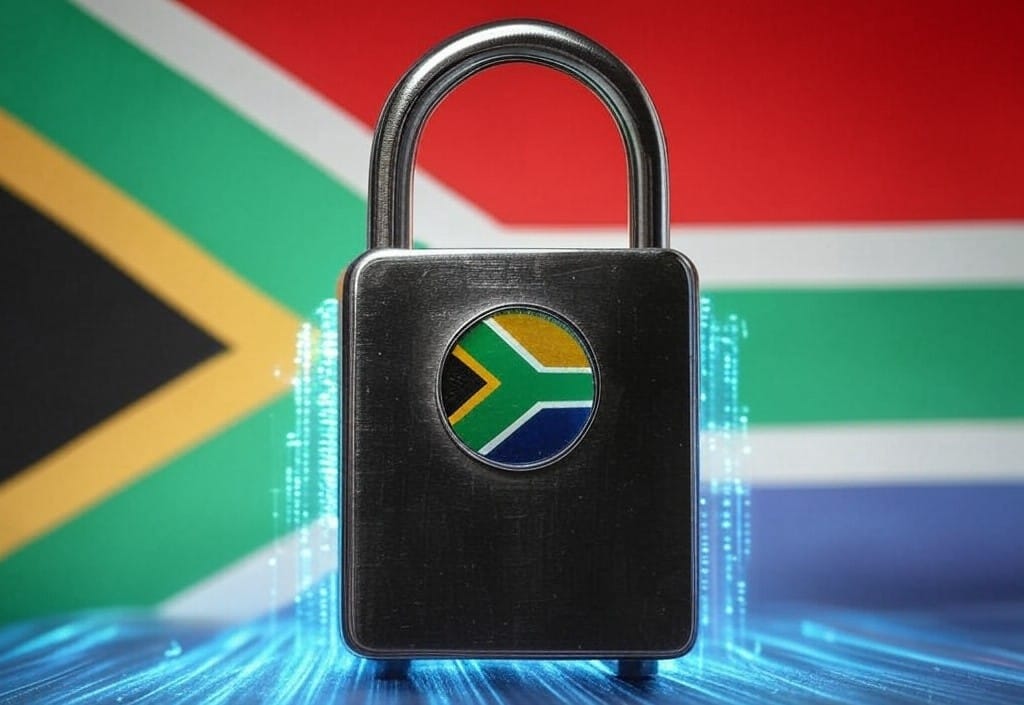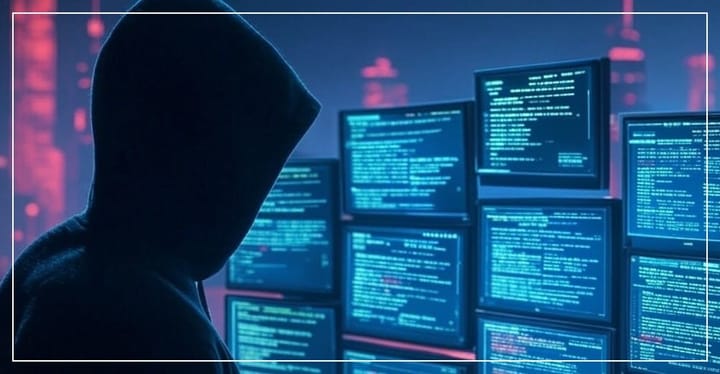South Africa’s Cyber Security Crisis - "Grow up & face reality"
South Africa’s cybersecurity approach is reactive, risking data and trust. Denials and late disclosures worsen harm. TFI urges openness, moral responsibility, and proactive defences to protect clients, not just reputations, from evolving cyber threats.

In the heart of South Africa’s bustling digital landscape, an uncomfortable reality persists: our approach to cybersecurity remains predominantly reactive, rather than proactive. TFI has witnessed this pattern repeatedly, with wide-ranging consequences for both corporations and every individual whose data is exposed.
Despite numerous warning signs, corporate denial has become the unfortunate default when ransomware or data leaks occur, often accompanied by a narrative of “Fake News” that public relations teams carefully craft.
Yet the evidence we uncover through dark web monitoring platforms tells a more disturbing story. The seeds of a breach are typically planted long before any public disclosure, with initial infiltration often involving insufficient endpoint security. Too many organisations still rely on outdated or non-existent antivirus software, fail to patch known vulnerabilities, or overlook the importance of employee vigilance against phishing attempts. This complacency allows malicious actors to exploit the same weaknesses time and again, quietly siphoning data for periods of up to two years before issuing a ransomware demand.
When ransomware finally makes headlines, many companies downplay the scale of the breach, typically admitting to a “limited amount of data” being compromised. However, the full extent of these incidents is rarely acknowledged. Our investigations reveal that phishing and malware campaigns had been ongoing for at least a year prior to official recognition of the attack, undermining any claim that a breach was sudden or contained. Despite such evidence, the year-long infiltration is often refuted.
South Africa’s cyber resilience gap is illustrated in the DarkReading article, which lists Africa overall, including South Africa, as ranking poorly in terms of phishing defences and broader cyber resilience.
Meanwhile, according to the South African Banking Risk Information Centre (SABRIC), cyber fraud incidents continue to rise, further emphasising the urgent need for improvement.
There is a moral and legal imperative at the heart of this problem. Corporations that collect personal data, often in significant quantities, become custodians of information entrusted to them by their customers and partners. It is not enough simply to observe statutory obligations, such as those set out by the Protection of Personal Information Act. These entities must recognise that the people behind this data can be seriously harmed when it is leaked onto the dark web. Customer information, including banking details and mobile numbers, is frequently used in targeted scams by fraudsters posing as reputable institutions.
The evidence TFI sees is clear: many of these scams succeed precisely because victims recognise details that only a bona fide company should have, leading them to believe the fraudster’s claims.
Organisations must also understand that cyber attackers do not limit themselves to stealing personal data. Confidential corporate information, including product development plans and long-term strategic documents, is often targeted, placing future profitability and competitiveness at risk. When such sensitive material is exposed, it bolsters criminals who are only too happy to leverage it for financial gain or to disrupt business operations.
South African organisations need to break free from this cycle of reactive denial and adopt a truly proactive security posture. This begins with committing to comprehensive endpoint protection measures that go beyond traditional antivirus software. It includes regular penetration testing and vulnerability assessments, robust network segregation, and continuous education for employees on the dangers of phishing, social engineering, and other sophisticated attacks. Crucially, corporations must acknowledge and publicise breaches as soon as they are identified, removing the cloak of suspicion and minimising the window in which criminals can exploit leaked data.
The cost of inaction is far too high. Regulatory penalties can be severe, but damage to brand reputation and the erosion of customer trust are potentially far more devastating. There is also a collective duty to protect consumers from the downstream effects of stolen data, which may lead to financial losses and emotional distress. An active willingness to engage with law enforcement, cyber experts, and the broader security community is essential if we are to stem this growing tide of breaches and fraud.
The digital future of South Africa hinges on a fundamental mindset shift away from denial and towards prevention.
Until corporate leaders treat data not merely as an asset but as a responsibility, critical pieces of personal and proprietary information will remain at risk. The time has come to embrace a new era of accountability and transparency, where cybersecurity is viewed as a core duty rather than a peripheral concern.
Organisations must be forthright about breaches, invite thorough investigations, and collaborate openly with cybersecurity professionals to identify and seal vulnerabilities. If South African enterprises can adopt this proactive approach, they will not only uphold their legal and ethical obligations but also help to create a safer digital ecosystem. In doing so, they will protect themselves, their customers, and the broader community from the devastation of unchecked cybercrime.
The reluctance of corporates and institutions to share information in real time reveals an immature stance that must change if South Africa is to make any meaningful progress in cybersecurity. Telecom operators, hosting centres, and banking institutions all have key roles to play in strengthening defences, but this is not solely about safeguarding reputations or mitigating negative publicity. It is about protecting the clients who have entrusted organisations with their personal information, often placing their financial well-being and privacy in corporate hands.
Cyber crime is a persistent and ever-evolving threat, and data breaches will inevitably occur, but the true measure of responsibility lies in swift notification, transparent communication, and the willingness to engage in meaningful education for the public.
South Africa cannot afford to maintain its place near the top of the phishing and security breach rankings, nor can it continue to point fingers at absent laws, dormant regulators, or reputational concerns when breaches happen. It is time for institutions to be open about their vulnerabilities, share threat intelligence, and act decisively to protect clients. "Grow up & face reality", this is not about shielding any particular individual, department, corporate reputation; it is about acknowledging failures, correcting them, and ultimately taking the mature path of proactive cybersecurity for the greater good of the citizens of South Africa.



